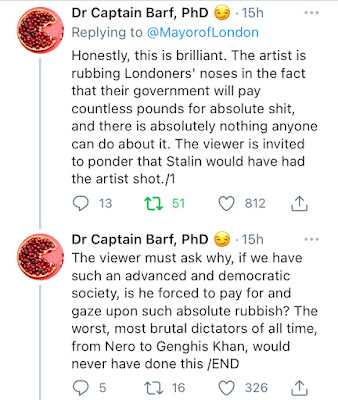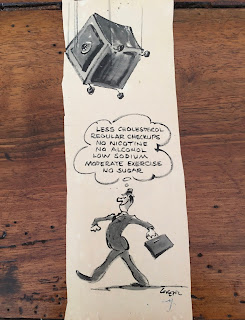That Whitsun, I was late getting away:
Not till about
One-twenty on the sunlit Saturday
Did my three-quarters-empty train pull out,
All windows down, all cushions hot, all sense
Of being in a hurry gone. We ran
Behind the backs of houses, crossed a street
Of blinding windscreens, smelt the fish-dock; thence
The river’s level drifting breadth began,
Where sky and Lincolnshire and water meet.
All afternoon, through the tall heat that slept
For miles inland,
A slow and stopping curve southwards we kept.
Wide farms went by, short-shadowed cattle, and
Canals with floatings of industrial froth;
A hothouse flashed uniquely: hedges dipped
And rose: and now and then a smell of grass
Displaced the reek of buttoned carriage-cloth
Until the next town, new and nondescript,
Approached with acres of dismantled cars.
At first, I didn’t notice what a noise
The weddings made
Each station that we stopped at: sun destroys
The interest of what’s happening in the shade,
And down the long cool platforms whoops and skirls
I took for porters larking with the mails,
And went on reading. Once we started, though,
We passed them, grinning and pomaded, girls
In parodies of fashion, heels and veils,
All posed irresolutely, watching us go,
As if out on the end of an event
Waving goodbye
To something that survived it. Struck, I leant
More promptly out next time, more curiously,
And saw it all again in different terms:
The fathers with broad belts under their suits
And seamy foreheads; mothers loud and fat;
An uncle shouting smut; and then the perms,
The nylon gloves and jewellery-substitutes,
The lemons, mauves, and olive-ochres that
Marked off the girls unreally from the rest.
Yes, from cafés
And banquet-halls up yards, and bunting-dressed
Coach-party annexes, the wedding-days
Were coming to an end. All down the line
Fresh couples climbed aboard: the rest stood round;
The last confetti and advice were thrown,
And, as we moved, each face seemed to define
Just what it saw departing: children frowned
At something dull; fathers had never known
Success so huge and wholly farcical;
The women shared
The secret like a happy funeral;
While girls, gripping their handbags tighter, stared
At a religious wounding. Free at last,
And loaded with the sum of all they saw,
We hurried towards London, shuffling gouts of steam.
Now fields were building-plots, and poplars cast
Long shadows over major roads, and for
Some fifty minutes, that in time would seem
Just long enough to settle hats and say
I nearly died,
A dozen marriages got under way.
They watched the landscape, sitting side by side
—An Odeon went past, a cooling tower,
And someone running up to bowl—and none
Thought of the others they would never meet
Or how their lives would all contain this hour.
I thought of London spread out in the sun,
Its postal districts packed like squares of wheat:
There we were aimed. And as we raced across
Bright knots of rail
Past standing Pullmans, walls of blackened moss
Came close, and it was nearly done, this frail
Travelling coincidence; and what it held
Stood ready to be loosed with all the power
That being changed can give. We slowed again,
And as the tightened brakes took hold, there swelled
A sense of falling, like an arrow-shower
Sent out of sight, somewhere becoming rain.


















